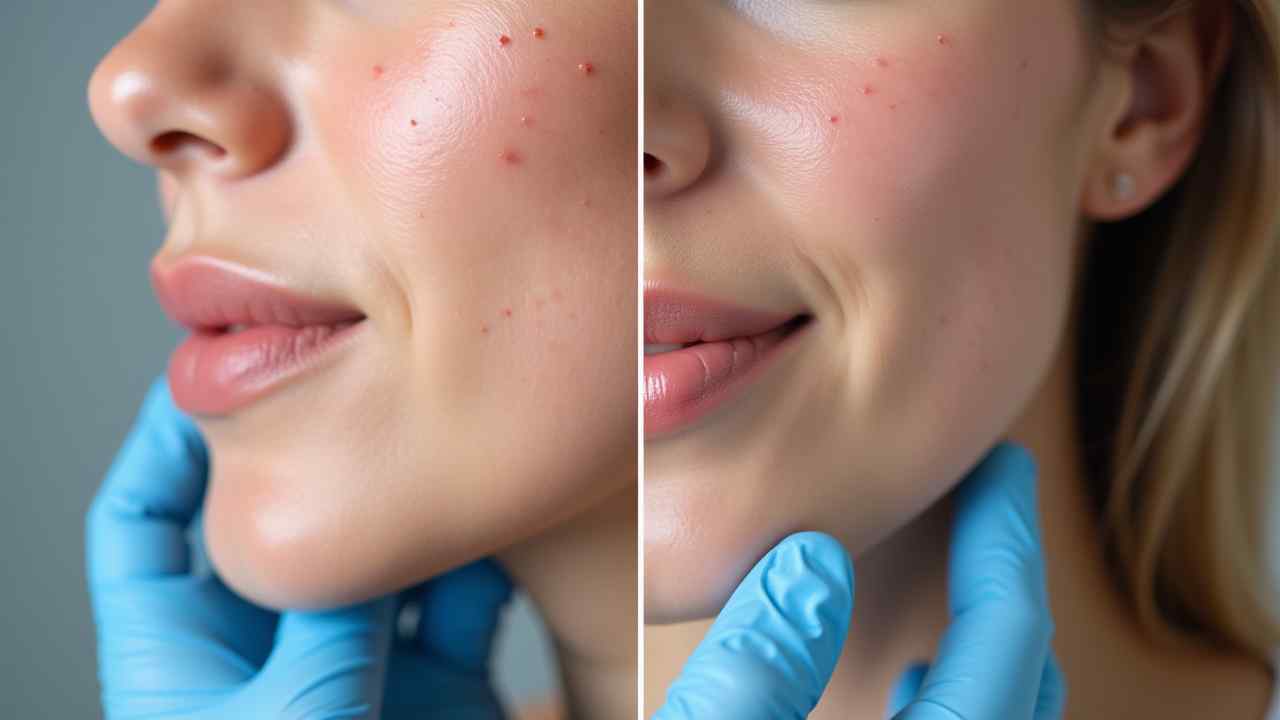
🔬 A Guide to Chemical Peels for Acne Scars (What to Expect)
🔬 Can Chemical Peels for Acne Scars Really Work? A Guide 🔬
Acne can be a frustrating journey. Even after the breakouts are gone, they can leave behind a reminder. Scars and dark marks can affect your confidence. This leads many people to seek effective treatments. One of the most popular options is a chemical peel.
So, can chemical peels for acne scars really work? The answer is yes. For the right type of scarring, they can be a highly effective treatment. They can significantly improve your skin's texture and tone. They are a powerful tool in a dermatologist's arsenal.
This guide will explain how they work. We will cover the different types of peels. We will also discuss what to expect before and after. Let's explore this popular skin-resurfacing treatment. ✨
Important Medical Note: Chemical peels are professional procedures. They must be performed by a board-certified dermatologist or a highly trained, licensed esthetician to ensure safety and effectiveness.
🤔 What Type of Acne Scars Can Chemical Peels Treat?
It is important to have realistic expectations. Chemical peels are not a magic wand for all types of scars. Their effectiveness depends on the type and depth of the scarring. They work best on two main issues.
First, they are excellent for post-inflammatory hyperpigmentation (PIH). These are the flat, red or brown marks that a pimple leaves behind. Peels are very effective at fading this type of discoloration.
Second, they are good for superficial, atrophic scars. These are shallow, indented scars. A series of peels can help to smooth the skin's texture. They are generally not effective for deep, "ice pick" scars. These require different, more intensive treatments.
🧪 How Does a Chemical Peel Work on Acne Scars?
The science behind a chemical peel is simple. It is a form of accelerated exfoliation. A chemical solution, typically an acid, is applied to the skin. This solution works to dissolve the bonds that hold dead skin cells together. This causes the outer layer of skin to peel off.
This peeling process has two main benefits. It removes the damaged and discolored surface cells. This immediately reveals brighter, smoother skin. More importantly, it triggers a healing response in the skin.
This controlled injury stimulates the production of new, healthy collagen. Collagen is the protein that gives skin its structure and firmness. This new collagen can help to "fill in" shallow scars from underneath. This is how chemical peels for acne scars improve texture over time.
⚗️ What Are the Different Types of Chemical Peels Used?
Chemical peels come in different strengths. Your practitioner will choose the right one for your skin type and concerns. The main types are categorized by their depth.
What are Superficial or "Lunchtime" Peels?
These are the gentlest peels. They often use Alpha-Hydroxy Acids (AHAs) like glycolic acid. They can also use Beta-Hydroxy Acids (BHAs) like salicylic acid. They have minimal downtime, with just some mild redness. A series of these peels is needed to see significant results.
What are Medium-Depth Peels?
These peels are more intensive. They often use Trichloroacetic Acid (TCA). They penetrate deeper into the skin. This makes them more effective for treating texture and stubborn pigmentation. They require about a week of downtime. During this time, your skin will be red and will visibly peel.
⭐ What is the "Before and After" Experience Like?
The journey with chemical peels for acne scars is a process. In the "before," your skin may have an uneven texture and discoloration. After a series of treatments, the "after" can be dramatic.
After the peeling and healing process is complete, you can expect results. The skin's texture will be much smoother. The appearance of shallow scars will be reduced. The red or brown marks will be significantly faded. Your overall complexion will be brighter and more even.
To achieve and maintain these results, you must be diligent with aftercare. This includes using gentle products and, most importantly, daily sunscreen. A consultation with a qualified professional is the first step. They can create a safe and effective treatment plan for you. 🧑⚕️